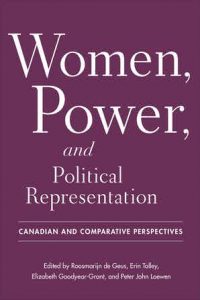
Community Economies in the Global South: Case Studies of Rotating Savings, Credit Associations, and Economic Cooperation
People across the globe engage in social and solidarity economics to help themselves, their community, and society on their own terms.
Community Economies in the Global South examines how people who conscientiously organize rotating savings and credit associations (ROSCAs) bring positive changes to their own lives as well as others. ROSCAs are a long-established and well documented practice, especially those organized by women of colour. Members make regular deposits to a fund as a savings that is then given in whole or in part to each member in turn based on group economics. This book spotlights women in Latin America, the Caribbean, Africa, and Asia who organize and use these associations, composed of ordinary people belonging to similar class origins who decide jointly on the rules to suit the interests of their members. The case studies show how they vary greatly across countries in the Global South, demonstrating that ROSCAs are living proof that diverse community economies do exist and have been around for a very long time. The contributors recount stories of the self-help, activism, and perseverance of racialized people in order to push for ethical, community-focused business, and to hold onto local knowledge, grounded theory, and lived experience, reducing the need to rely on external funding as people find ways to finance sustainable, debt-free business ventures. The first collection on this topic edited by two women of colour with roots in the Global South, this volume is a rallying call to other scholar-activists to study and report on how racialized people come together, pool goods, and diversify business in the Global South.

Outsourcing Repression: Everyday State Power in Contemporary China
A compelling examination of a counterintuitive solution to China’s engagement of nonstate actors to coerce citizens into compliance while minimizing backlash against the state. How do states coerce citizens into compliance while simultaneously minimizing backlash? In Outsourcing Repression, Lynette H. Ong examines how the Chinese state engages nonstate actors, from violent street gangsters to nonviolent grassroots brokers, to coerce and mobilize the masses for state pursuits, while reducing costs and minimizing resistance. She draws on ethnographic research conducted annually from 2011 to 2019–the years from Hu Jintao to Xi Jinping, a unique and original event dataset, and a collection of government regulations in a study of everyday land grabs and housing demolition in China. Theorizing a counterintuitive form of repression that reduces resistance and backlash, Ong invites the reader to reimagine the new ground state power credibly occupies. Everyday state power is quotidian power acquired through society by penetrating nonstate territories and mobilizing the masses within. Ong uses China’s urbanization scheme as a window of observation to explain how the arguments can be generalized to other country contexts.

The Daily Plebiscite: Federalism, Nationalism, and Canada
From the mid-1960s through the mid-1990s, Canada was in a state of ongoing political crisis. Within this thirty-year period, David R. Cameron was an active participant and observer of Canada’s crisis of national unity. As a political scientist and former senior public servant, Cameron remains one of the most astute and respected analysts of Canadian federalism.
This volume assembles some of Cameron’s best works on federalism, nationalism, and the constitution, including journal articles, book chapters, speeches, newspaper op-eds, and unpublished opinion pieces spanning nearly fifty years of engagement. In addition, The Daily Plebiscite includes a conversation between Cameron and Robert C. Vipond on the “long decade” of the 1980s in Canadian constitutional politics, a brief history of the mega-constitutional era, and concluding reflections on the broader lessons that other divided societies might take from the Canadian experience.
Providing rich fare for anyone interested in questions of federalism, nationalism, and constitutionalism, The Daily Plebiscite offers an informed, insider’s perspective on the national unity question and considers the challenges faced by a federal, multinational, and multicultural country like Canada.

Provincial Policy Laboratories: Policy Diffusion and Transfer in Canada’s Federal System
Canada’s federal system, composed of ten provincial governments and three territories, all with varying economies and political cultures, is often blamed for the country’s failure to develop coordinated policy responses to key issues. But in other federal and multi-level governance systems, the ability of multiple governments to test a variety of policy responses has been lauded as an effective way to build local and national policy.
Despite high-profile examples of policy diffusion in Canada, there has been surprisingly little academic study of policy learning and diffusion among provinces. Featuring cutting-edge research, Provincial Policy Laboratories explores the cross-jurisdictional movement of policies among governments in Canada’s federal system. The book comprises case studies from a range of emerging policy areas, including parentage rights, hydraulic fracturing regulations, species at risk legislation, sales and aviation taxation, and marijuana regulation. Throughout, the contributors aim to increase knowledge about this understudied aspect of Canadian federalism and contribute to the practice of intergovernmental policymaking across the country.

Show Time: The Logic and Power of Violent Display
In Show Time, Lee Ann Fujii asks why some perpetrators of political violence, from lynch mobs to genocidal killers, display their acts of violence so publicly and extravagantly. Closely examining three horrific and extreme episodes—the murder of a prominent Tutsi family amidst the genocide in Rwanda, the execution of Muslim men in a Serb-controlled village in Bosnia during the Balkan Wars, and the lynching of a twenty-two-year old Black farmhand on Maryland’s Eastern Shore in 1933—Fujii shows how “violent displays” are staged to not merely to kill those perceived to be enemies or threats, but also to affect and influence observers, neighbors, and the larger society.
Watching and participating in these violent displays profoundly transforms those involved, reinforcing political identities, social hierarchies, and power structures. Such public spectacles of violence also force members of the community to choose sides—openly show support for the goals of the violence, or risk becoming victims, themselves. Tracing the ways in which public displays of violence unfold, Show Time reveals how the perpetrators exploit the fluidity of social ties for their own ends.

Women, Power, and Political Representation: Canadian and Comparative Perspectives
Delving into the pressing topic of gender and politics, this volume provides fresh comparative perspectives on “what works” to promote women in politics today. Inspiring and informative, Women, Power, and Political Representation offers a comprehensive overview of the role women play in contemporary politics, and pinpoints the reasons behind their underrepresentation.
Discussing the challenges and opportunities women face when running for office, as well as their experiences as political leaders, this book offers a broad and thoughtful overview of the pitfalls encountered by women, from gender biases to sexual harassment, in the notoriously male dominated political arena. Featuring a range of voices that articulate a path towards women’s political advancement and equality, Women, Power, and Political Representation is an important and timely resource for scholars, students, and women working professionally in Canadian and international politics.

Group Interests, Individual Attitudes: How Group Memberships Shape Attitudes Towards the Welfare State
What drives support for or opposition to redistributive taxation and spending? Why is ethnic diversity associated with inequality and a lack of redistribution?
This book argues that many individuals, recognizing that they live in a world of uncertainty, use the groups of which they are a member as a heuristic to understand how welfare states are likely to impact them. This leads to reduced support for redistribution among the wealthy, whose disproportionate influence over policy in turn leads to less redistribution. Group Interests, Individual Attitudes develops the argument with a series of empirical implications, which are then tested using data from a variety of sources. It examines regional and ethnic politics in the United Kingdom, Germany, Slovakia, Canada, and Italy, using a combination of qualitative and quantitative evidence, existing and new surveys, and observational and experimental methods. The evidence is largely consistent with a heuristic theory, allowing us to see group politics in a new light.

Democracy and Nationalism in Southeast Asia: From Secessionist Mobilization to Conflict Resolution
Jacques Bertrand offers a comparative-historical analysis of five nationalist conflicts over several decades in Southeast Asia. Using a theoretical framework to explain variance over time and across cases, he challenges and refines existing debates on democracy’s impact and shows that, while democratization significantly reduces violent insurgency over time, it often introduces pernicious effects that fail to resolve conflict and contribute to maintaining deep nationalist grievances. Drawing on years of detailed fieldwork, Bertrand analyses the paths that led from secessionist mobilization to a range of outcomes. These include persistent state repression for Malay Muslims in Thailand, low level violence under a top-down ‘special autonomy’ for Papuans, reframing of mobilizing from nationalist to indigenous peoples in the Cordillera, a long and broken path to an untested broad autonomy for the Moros and relatively successful broad autonomy for Acehnese.

Colonial Institutions and Civil War: Indirect Rule and Maoist Insurgency in India
What explains the peculiar spatial variation of Maoist insurgency in India? Mukherjee develops a novel typology of colonial indirect rule and land tenure in India, showing how they can lead to land inequality, weak state and Maoist insurgency. Using a multi-method research design that combines qualitative analysis of archival data on Chhattisgarh and Andhra Pradesh states, Mukherjee demonstrates path dependence of land/ethnic inequality leading to Maoist insurgency. This is nested within a quantitative analysis of a district level dataset which uses an instrumental variable analysis to address potential selection bias in colonial choice of princely states. The author also analyses various Maoist documents, and interviews with key human rights activists, police officers, and bureaucrats, providing rich contextual understanding of the motivations of agents. Furthermore, he demonstrates the generalizability of his theory to cases of colonial frontier indirect rule causing ethnic secessionist insurgency in Burma, and the Taliban insurgency in Pakistan.

Slow Anti-Americanism – Social Movements and Symbolic Politics in Central Asia
Negative views of the United States abound, but we know too little about how such views affect politics. Drawing on careful research on post-Soviet Central Asia, Edward Schatz argues that anti-Americanism is best seen not as a rising tide that swamps or as a conflagration that overwhelms. Rather, “America” is a symbolic resource that resides quietly in the mundane but always has potential value for social and political mobilizers. Using a wide range of evidence and a novel analytic framework, Schatz considers how Islamist movements, human rights activists, and labor mobilizers across Central Asia avail themselves of this fact, thus changing their ability to pursue their respective agendas. By refocusing our analytic gaze away from high politics, he affords us a clearer view of the slower-moving, partially occluded, and socially embedded processes that ground how “America” becomes political. In turn, we gain a nuanced appreciation of the downstream effects of US foreign policy choices and a sober sense of the challenges posed by the politics of traveling images.
Most treatments of anti-Americanism focus on politics in the realm of presidential elections and foreign policies. By focusing instead on symbols, Schatz lays bare how changing public attitudes shift social relations in politically significant ways, and considers how changing symbolic depictions of the United States recombine the raw material available for social mobilizers. Just like sediment traveling along waterways before reaching its final destination, the raw material that constitutes symbolic America can travel among various social groups, and can settle into place to form the basis of new social meanings. Symbolic America, Schatz shows us, matters for politics in Central Asia and beyond.